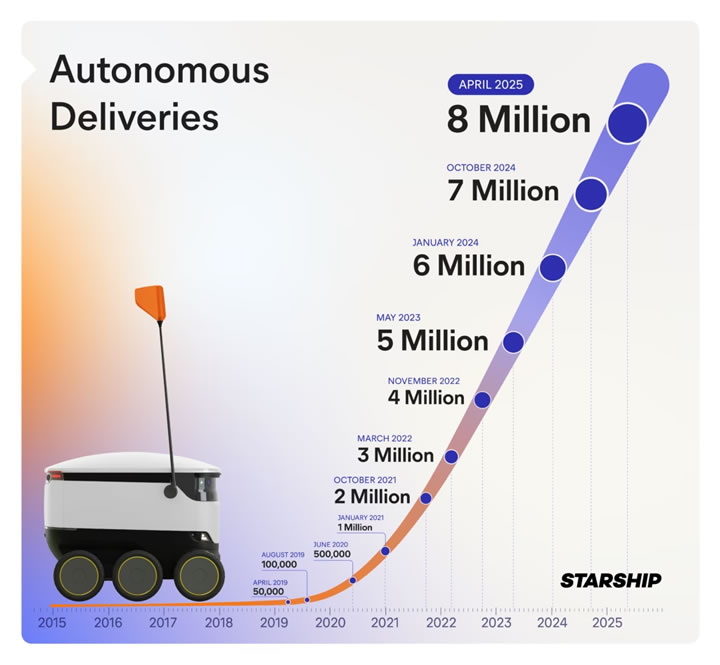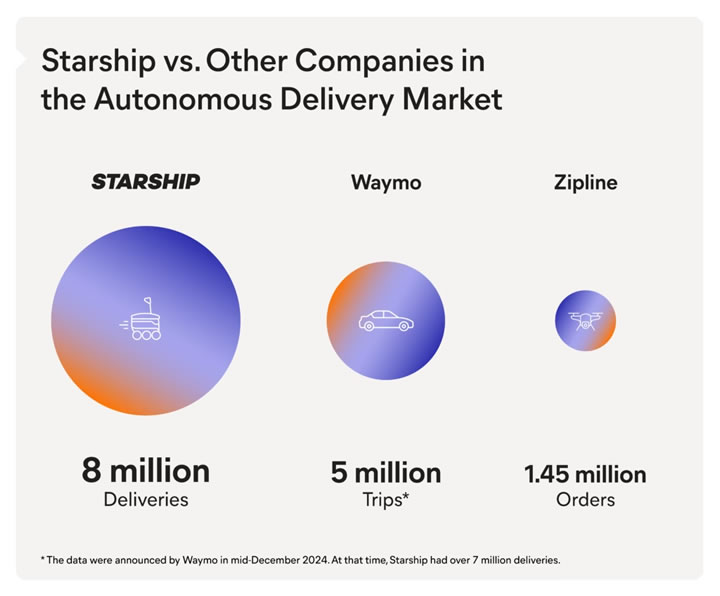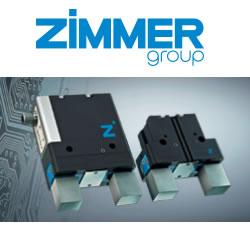Starship Technologies Surpasses 8 Million Deliveries

While others are still piloting their way through the future of last-mile delivery, Starship Technologies just passed another major milestone: over 8 million autonomous deliveries completed by its fleet of sidewalk robots.
That’s not just momentum — it’s market leadership. With operations across multiple countries and US university campuses, Starship is now the undisputed global leader in autonomous delivery, both in scale and in real-world deployment.
“While many robotics companies are still launching pilot projects with just a couple of robots or building their first prototypes, we’ve proven ourselves as a real-world solution,” said Ahti Heinla, Starship’s co-founder and CEO. “With millions of deliveries behind us, we’re not just imagining the future—we’re already operating in it.”
How Starship stacks up across the autonomous delivery landscape
- Zipline, founded in 2014, has delivered 1.45 million orders [1] across seven countries, including the US, Ghana, and Japan, primarily in healthcare and e-commerce.
- Waymo, Alphabet’s self-driving car unit and the most established player in autonomous ride-hailing, announced in late 2024 (mid-December) that it had surpassed 5 million driverless trips [2] to date.

With 8 million autonomous deliveries, Starship not only leads the sidewalk robot category—it’s ahead of some of the most recognized names in the broader autonomous mobility space.
According to Transforma Insights’ recent report, Delivery Robots: 4.7 million automated urban delivery vehicles by 2032, the market for delivery robots is expected to grow at a 64% CAGR between 2022 and 2032, reaching 4.7 million active robots globally by the end of the decade.
Facts about Starship’s robots
- Starship’s fleet of 2000+ robots operates across 150+ locations in six countries
- They are fully autonomous, operating at Level 4 autonomy
- They cross 125,000 roads and driveways per day – that’s ~ 2 crossings per second
- The robots are fully electric. The average Starship delivery consumes about the same amount of energy as boiling a small kettle of water
- So far, Starship robots have saved over 500 tonnes of CO2 entering the atmosphere in Europe, providing a battery-powered alternative to jumping in the car to collect groceries
ABOUT STARSHIP TECHNOLOGIES:
Starship is the world leader in autonomous delivery robots, revolutionizing how goods are delivered. Across the US and Europe, we help businesses deliver groceries, hot food, and industrial supplies with cutting-edge technology that’s reliable, efficient, and eco-friendly.
Starship was founded by Ahti Heinla (Skype chief architect) and Janus Friis (Skype co-founder) in 2014, and since then, we’ve been redefining last-mile delivery with real-world solutions for top universities, delivery apps, grocery retailers, and industrial sites in 150+ locations worldwide.
Our fleet of over 2,000 autonomous robots delivers daily, creating unmatched convenience for communities while reducing car journeys and cutting carbon emissions on a global scale. We’re transforming the least efficient stretch of the supply chain, making the last mile more cost-effective and ethical.
[1] Source: ZipLine
[2] Source: The Verge
Featured Product

